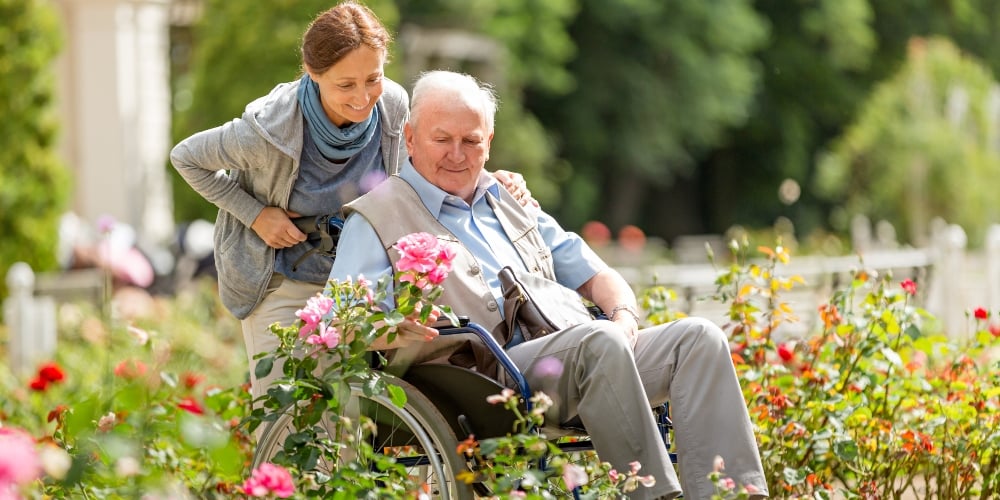
Even though caregiving is one of the most rewarding and selfless acts of kindness a family member can choose to provide for an aging loved one, caring for someone else- even family- is stressful.
Juggling medical appointments, managing medications, and helping with activities of daily living (like showering or dressing) can become challenging as time progresses and the needs of a loved one change.
When caregivers don’t get the physical, emotional, and spiritual support they need, the stress of caregiving can leave them vulnerable to a wide range of problems, including depression, anxiety, and caregiver burnout.
The effects of caregiver stress are more common than one might think. The Family Caregiver Alliance reports that 40 to 70 percent of family caregivers show clinically significant symptoms of depression. And, the Center on Aging Society reports that one in 10 family caregivers have seen their own physical health worsen.
In some severe cases of caregiver stress (which ultimately leads to caregiver burnout) those caring for an aging loved one with significant needs may begin to question their life’s purpose.
Life purpose, by definition, is the reason you exist — an intended end, aim, or goal. Purpose creates meaning, offers a sense of direction, and helps guide our paths in life. “When someone loses their sense of purpose, you might see isolation, depression, or sadness,” says the Executive Director of Highgate Senior Living in Flagstaff. Unsurprisingly, most would not define their life’s purpose as becoming a family caregiver for an aging parent.
For many, caregiving for an aging parent is something we haven’t put a lot of thought into until the need arises. Why? According to Pfizer, 87% of Americans fear getting old. Adults also tend to avoid the thought of a parent aging and needing support.
Lack of time to process your own feelings about your parent's aging coupled with the added responsibility of their care are two of many ingredients that can lead to caregiver stress and, ultimately, burnout.
Decreasing Caregiver Stress with Self Care
The emotional and physical demands involved with caregiving can strain even the most resilient person. Regardless of the amount of time you spend caregiving, making time for your own needs is just as important as providing care and support to your loved one. You have to take care of yourself first, both physically and emotionally, in order to care for someone else.
Looking for ways to decrease caregiver stress that you could try today? Here are six quick tips to get you started - even if you aren’t a caregiver.
- Get outside and get some exercise daily. The healing power of nature is often underestimated and fresh air is key for mental health.
- Get a therapeutic massage.
- Get a good night’s sleep by practicing a relaxing bedtime ritual
- Try coloring to relieve stress. Adult coloring books have become an increasingly popular way to decrease stress through mindfulness, the act of focusing on being in the present moment.
- Put pen to paper and start a journal.
- Try aromatherapy. Essential oils like lavender, peppermint, rose, and eucalyptus are soothing and relaxing.
Support for Family Caregivers
Even the most resilient struggle sometimes. Fortunately, there are several resources that can help family caregivers navigate through caregiving for a loved one. Here are a few ways to tap into those resources.
- Join a caregiver support group: Caregiver support groups allow you to connect with other caregivers who likely are facing the same or similar challenges as you. They also offer a safe place to navigate through your feelings.
- Explore online resources: A wide variety of information, advice, fact sheets, reports, studies, and discussion groups can be found online for family caregivers.
- Have a plan in place for short-term relief from caregiving. Whether another family member or a respite stay at a community that can provide 24/7 support to your loved one, everyone needs a break from caregiving from time to time. Have a plan in place to avoid being in crisis when the stress of caregiving becomes overwhelming.





